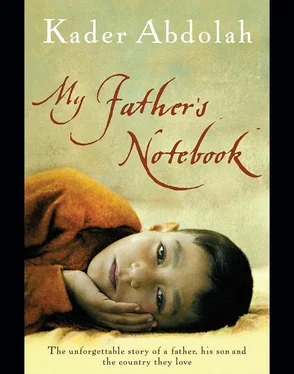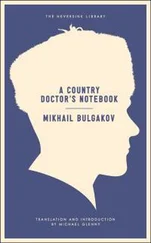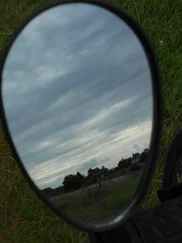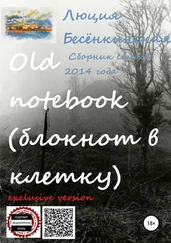I knelt on the mat, lay my head on the ground, and wept. I had no idea why, or who the tears were for.
I gathered up my belongings, including the notebook, and biked home.
I’m usually strong and not easily frightened, but now, for the first time, fear has burrowed into the innermost recesses of my soul. Is it because I’ve been working on the notebook, writing a book in Dutch and going to classes, all at the same time? A heavy load. I’ve been working hard the last few months — not taking any breaks, spending day and night trying to whip this book into shape. That must be the reason. Fear has found my weak spot. I’ll never go in the water again, or at any rate I’ll keep my feet firmly on the ground until this book is finished.
The day I swam out to Marianne and clung to her in the middle of the lake, she gave me a book. Not then, but later, after we’d changed out of our wet bathing suits. It was a volume of poetry by the Dutch poet Jan Slauerhoff.
“Here,” she said, “think of it as your swim certificate.”
The title of one of the poems was “My Daughter Golden Bell”:
At not quite forty, I had a daughter ,
And quickly dubbed her Golden Bell .
In the year since she was born ,
She’s learned to sit, but not yet talk .
The poem goes on, though I’ve quoted only these four lines.
Maybe it’s a coincidence, maybe not, but my youngest sister’s nickname was Zanguli, which can be translated as Golden Bell.
Zanguli is not a pretty name for a Persian girl. Her real name is Mahbubi.
My father was afraid that his children would be deafmutes. So great was his fear that he wasn’t even present at the birth of his first two daughters.
I remember when my youngest sister was born. I was standing at my father’s side when the midwife laid the baby in his arms. He held her to his chest with one hand and pulled a tiny golden bell out of his pocket with the other. He rang it softly next to her ear. The baby opened her eyes and looked up at him.
“Did you see that?” he signed, glowing with happiness. “Did you see that? She’s not deaf! She can hear!”
Then he handed me the bell and said, “You try it!” I rang it softly and my sister opened her eyes for a second time and looked at me.
“Did you see that?” my father said again and he laughed out loud, so loud that she started to cry.
So that’s how she came to be our baby, to belong to my father and me. And also how her name came to be Golden Bell in my father’s sign language.
He had different names for all of us, and he changed them whenever there was a major change in our lives. For example, in the beginning I was called Mine.
When he put his right hand to the left side of his chest, everyone knew he was referring to Ishmael. Later he changed my name to The Boy Who Crawls Under the Blankets and Reads. When I went to the university, he called me The Man Who Wears Glasses. Two years later I became The Man Who Is Never Here. And after that I was no doubt known as The Man Who Went Away. But he never changed Golden Bell’s name. She was always Golden Bell.
She was different from the start. Golden Bell immediately became my father’s favourite daughter. She, too, had been born to ease my father’s suffering. That’s how nature — or the god of deaf-mutes — works.
As a baby, she used to crawl happily to the door the moment she heard his footsteps. She was a divine gift.
Later, when he came home exhausted from his work in the factory, she massaged his shoulders. When he was sick, she made him soup. Years later, when I was a student in Tehran, she brought him there for his very first visit and showed him around. (I’d promised to show him Tehran, but hadn’t kept my promise.) She had a camera and she took pictures of him in various places. There was a good one of him standing by the statue of Reza Shah. She had put her arm around his waist and asked a passer-by to photograph them together. Then she’d taken him to the airport so he could see how planes fly. Every evening they’d gone to a movie theatre where a series of Charlie Chaplin movies was being shown.
Golden Bell was our great joy as well as our great sorrow.
A natural division had taken place in our family: Golden Bell and I were on my father’s side, while my sisters Marzi and Enzi were usually on my mother’s side. They seemed to get along better with Tina. Golden Bell didn’t. Why not? I don’t really know, but maybe we’ll find out as the story unfolds. Still, one thing can’t be denied: Golden Bell was my father’s favourite daughter.
Now that we know who Golden Bell is, I’m going to go back in time so we can see what’s happened to my father.
When he first came down from the mountains, I barely recognised him. He wasn’t at all like the man I’ve written about in the previous chapters. He was older and smaller.
Late one evening there was a knock at the door. I switched on the hall light, opened the door and got a shock. He looked ill and he didn’t seem to have a tooth left in his mouth. He stared at me — another cry for help. I took his arm and led him into the light.
“Open your mouth,” I said.
He opened his mouth. His teeth were rotten: all black and broken. (How could I not have noticed that before?)
“It hurts,” he signed. “It hurts all the time.”
His eyes filled with tears. At last someone had noticed, at last someone had realised that he was in pain. It took me a few moments to remember who I was and what my function was in this household. I smoothed back his grey hair. “I’ll take care of it,” I signed. “Everything will be all right. I’ll make the pain go away.”
He bowed his head. Good God, he bowed his head to me in thanks.
• • •
We didn’t have enough money to get his teeth fixed, but that was beside the point. What mattered was that I do something about the pain.
We had a few dentists in our city. We also had a clinic, but rich people, or anyone who could afford private care, avoided going there, because you had to wait so long to see a doctor or a dentist. Queues formed early in the morning. Some people even brought blankets and slept there overnight.
The queue for the dentist was the longest. Sometimes you had to sleep there three nights in a row just to reach the door. Once you got inside, the dentist simply pulled out your aching tooth and sent you home with a couple of painkillers. You had no right to any other treatment. I’ve seen old men reduced to tears by toothaches.
With such an inhumane system, how would I be able to help my father?
One morning, hours before school started, I went into town to find a dentist. There were three of them. As it turned out, they were all closed until ten o’clock. In the window of the first was a note stating that no new appointments could be made for the next two months. The second dentist had a fancy office with a big sign above the door: THE LATEST IN TECHNOLOGY FOR ALL YOUR DENTAL NEEDS.
You were supposed to call for an appointment, but there was only one public phone booth in the entire city. Besides, I’d never even touched a telephone.
After seeing their offices, I knew those two dentists would never let my father and his broken teeth through the door. So I set off for the last dentist. His office was in his home, just outside the city centre. It was an old, large house with a classical gateway. A simple sign said: PUR BAHLUL, D.D.S. MONDAY TO THURSDAY, 3:00–7:00 P.M.
I didn’t have any money, but I was the son of a rather unusual patient, so I ignored the sign and the office hours. The dentist was probably still in bed, or reading his newspaper at the breakfast table. I banged the door knocker twice. No answer. I tried again. An old man, a gardener with a watering can in his hand, opened the door.
Читать дальше












